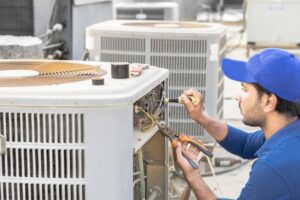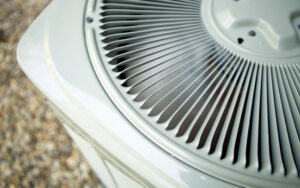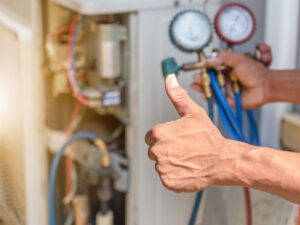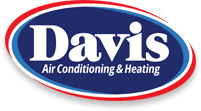6 Risks of Poor Indoor Air Quality
Indoor air pollution is nothing to sneeze at, especially during the winter months. Keep your Houston area family healthy by understanding these six risks of bad indoor air quality and how to prevent them.
Volatile Organic Compounds (VOCs)
These harmful particles become airborne when they off-gas from solid and liquid products throughout your home. From harsh household cleaners to furniture and carpet adhesives to interior paint, numerous everyday products constantly generate VOCs. While some air filters can trap certain VOCs, one of the easiest and healthiest ways to do so is by staging houseplants throughout your home.
Depending on which VOCs you’re dealing with, you’ll want to include different plants inside your home. For instance, aloe vera is known to absorb benzene, which off-gasses from household cleaners and interior paint. For something a little larger, ficus trees absorb formaldehyde, which often comes from carpeting and furniture adhesives.
Dust Mites
These critters trigger serious allergic reactions in many people, and they can thrive in your home year-round if you’re not careful. The first step to controlling a dust mite problem is to dust hard surfaces and vacuum carpeted areas thoroughly once per week. When your home’s indoor air quality is particularly poor, though, this cleaning routine might not be enough.
Dust mites thrive in humid conditions, which aren’t unusual in the Houston area. Your home’s HVAC system can often manage humidity on its own, but consider taking an additional step when excess moisture gets out of control. A whole-home dehumidifier works with the HVAC system to pull moisture from the air, keeping your home’s indoor air at a manageable and healthy humidity level.
Mold and Mildew Growth
Mold and mildew spores can also thrive in high humidity, and moist conditions can encourage mold to grow rapidly. You can also prevent mold from growing by stopping it in its tracks before it has a chance to respond to moisture. Many Carrier air purifiers feature the effective Captures and Kills technology, which traps about 95 percent of small airborne particles and eliminates 99 percent of mold spores, pollen, and germs. In addition to mold, these whole-home air purifiers clean and purify all of the air in your home in order to inactivate the flu virus, the common cold virus, measles, and much more.
Radon
An invisible, odorless, tasteless gas, radioactive radon is particularly dangerous when it enters your home. This gas doesn’t typically accumulate outdoors, but it can reach dangerous levels indoors without offering much of a signal. Since radon exposure can cause lung cancer, it’s important to test your home for radon. Start by testing the basement or ground floor with a short-term test available at a hardware store. If the short-term test reveals dangerous indoor air quality, pursue a long-term radon test.
In general, if these tests indicate a radon level of four or above, you’re susceptible to radon exposure. Find a local radon expert right away and pursue eradication.
Carbon Monoxide
Another tasteless, odorless, and invisible gas, carbon monoxide can also be deadly if inhaled in large amounts or over long periods of time. This gas can leak into your home’s air and build up when you least expect it, often as a result of incomplete burning of coal, kerosene, or natural gas or exposure to equipment with internal-combustion engines. Homeowners should test for carbon monoxide at all times, and monitoring this indoor air quality issue is as easy as strategically placing carbon monoxide alarms throughout the house.
Pet Dander
If you keep dogs, cats, or other furry animals in your home, chances are you have a pet dander problem. Along with frequent cleaning, dusting, and vacuuming, you can alleviate pet dander reactions by replacing the HVAC system’s air filter. Be sure to choose a pleated filter that traps pet dander, and set a reminder to continue to change the filter periodically. Replace the air filter every one to three months, and the whole family will breathe easier.
Worried about the state of your home’s air? Call Davis AC to discuss professional solutions for managing your home’s indoor air quality: 888-710-5530.
Image provided by Shutterstock
You May Also Like

Why Getting Same-Day AC Repair Service in Houston Matters
It’s a mild February afternoon in Houston, TX, and your air conditioner suddenly stops blowing cool air. While temperatures hover around 75… Continue Reading Why Getting Same-Day AC Repair Service in Houston Matters…

Need a New HVAC Installation in Richwood, TX? Trust in Carrier
Heating and cooling account for nearly 50% of home energy use, making your HVAC system the hardest-working equipment in your house. When… Continue Reading Need a New HVAC Installation in Richwood, TX? Trust in Carrier…

Is My Heat Pump in Fort Bend, TX, Low On Refrigerant?
Your heat pump hums through the cool January mornings in Fort Bend, TX, but something feels off. The air trickling from your… Continue Reading Is My Heat Pump in Fort Bend, TX, Low On Refrigerant?…
